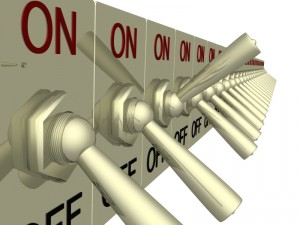 Part One: Misinterpreting Experience
Part One: Misinterpreting Experience
This post begins our exploration of a key element that contributes to treatment success: motivation.
True story: Jane the nurse would meet me at the door of Detox to complain that the current crop of patients was the least motivated in memory. One day I told her: “Jane, I’ve asked all our referral sources to send us only their most motivated patients. And they keep sending us these. I must conclude, therefore, that this is all they’ve got.”
Motivation is a hot button topic in the addictions community. There’s a group that insists it’s ultimately the patient’s responsibility, on the grounds that you can lead a horse to water, etc., etc. Then there’s a contingent arguing that motivation is the responsibility of the treatment professional– that a skilled counselor can increase a patient’s desire to change. I’m not taking sides in this argument. My question is, why is motivation such an enduring problem?
Seems to me that most addicts and alcoholics wind up in treatment because they’re experiencing difficulties due to substance use– ranging from the pain of withdrawal to troubles with the law, to threatened loss of job or family. In other words, they’ve got real reasons to seriously consider getting into recovery. Still, experience tells us that for most, it isn’t enough. Well, why not?
Take the repeat drunk driving offender: He or she arrives in treatment angry, perhaps insisting the arrest and/or conviction was unjust. Dealing with that anger is a huge distraction from treatment. It’s often a month before any real engagement occurs– if then. But why all the resentment? After all, researchers tell us that offenders have likely driven drunk 50-200 times for every arrest. Shouldn’t they have expected the axe to fall? Especially since it had fallen before.
In reality, it’s not that difficult to understand. If we do something illegal up to 200 times without incurring a penalty, we’ll naturally assume we can do it a 201st time. If we routinely toss our empty coffee cup out the car window without getting busted for littering, it’s a dead cert we’ll assume we won’t be arrested the next time either. When we do finally get caught, we’ll be plenty mad about it. It’ll feel like the universe has played a trick on us.
That’s because we were interpreting our experience incorrectly. Learning the wrong lesson, so to speak.
That’s just one minor example of how the experience of addiction can actually interfere with the motivation for change.
More info coming up in Part Two: Building Blocks of Motivation
Motivation vs. Unmotivation -More from this series:
- Motivation vs. Unmotivation
- Building Blocks of Motivation
- A Simple Test
- Agenda vs. Agenda
- The Active and the Passive
- Hidden Agendas
- Examining Goals and Assumptions








